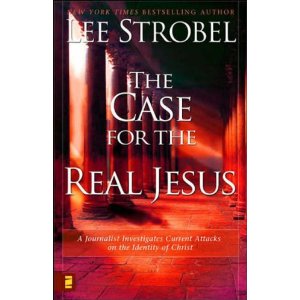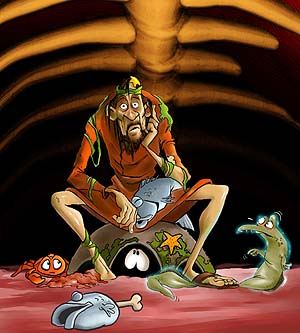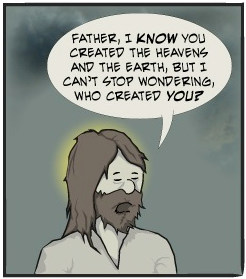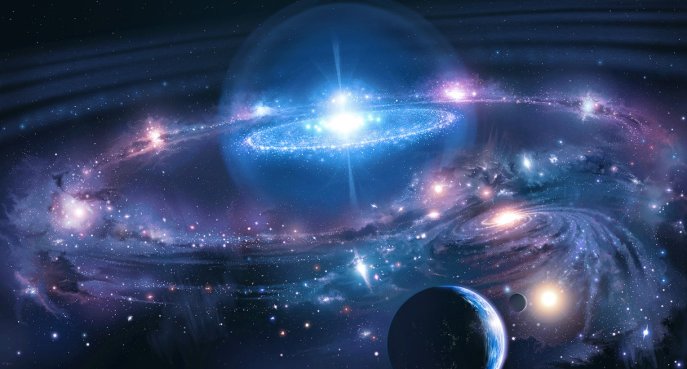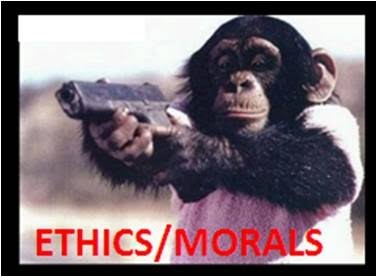
It’s still Monday, so no apologies. But here’s an extra long post to make up for the long wait (I’m just going to pretend someone was waiting).
Part 1 – The Existence of God
1.4 Further Evidence: Morality Argument
So far I’ve focused on the Cosmological Argument for the existence of God (that’s what it’s called by the way – I think I forgot to mention that). First I showed that the universe has a cause, and then I addressed various objections that tend to come up. Before I move on to the identity of this “Cause”, I want to offer a few additional pieces of evidence that will help us identify what this being is like.
I am primarily indebted to C.S. Lewis’ book “Mere Christianity” for my understanding of this argument. In fact, I am indebted to “Mere Christianity” for introducing me to the writing of C.S. Lewis. If you have not read it yet, or if somehow you don’t even know who C.S. Lewis is (we are a peaceful race, please don’t destroy our planet); then you should stop reading this, go get the book & read it immediately. Seriously, why are you still reading? For the rest of you, since you’ve already read C.S. Lewis, probably the rest of what I write is of no consequence. But just for fun, I’ll continue.
Ok, so the morality argument begins with an assumption. The assumption is that the idea of objective right & wrong is a reflection of reality, rather than merely subjective feelings. So when we say, “it’s wrong to rape & torture children”, we mean that this is objectively true; independent of what anyone thinks about it.
At this point I should explain “objective”, because this is often a point of misunderstanding. In fact, until recently I misunderstood this term. “Objective” is generally defined as “mind-independent”. So we say that the statement “grass is green” is objectively true; because it describes something that is true regardless of whether there was any mind to perceive its truth. It is simply the way reality is: grass is green & rape is wrong. Now, critics often point out that according to Theistic morality, right & wrong is defined by God; who is a mind. So if rape is wrong because God declares it so, how can we say it is objective? Wouldn’t it be subjective?
Until recently, I actually thought this critique made a good point. Nevertheless, it seemed to me that subjective with respect to the eternal, transcendent (beyond the universe), all-powerful, all-knowing God of the universe is practically the same as objective, as far as we’re concerned; so I was willing to grant the point. I still think there is no significant difference as far as we’re concerned, so this is not an important point for me; however, I’ve come to understand it differently.
Objective truth is true regardless of the subject that knows it; grass is still green if it grows on a deserted island, and rape is wrong even when no people are present (it’s also impossible in that situation). But this has nothing to do with the cause of that reality. For example, say I discovered orange grass & in order to appease my offended senses, I painted the orange grass green. I (a mind), would be the cause of that grass being green; yet it would still be the objective truth that it is in fact green. My causing it to be that way does not make it a subjective “truth” (pardon the oxymoron). In the same way, moral truth may be established by God; yet it remains objectively true.
Now where were we? Right, so moral truth is an objective reality. But what are the implications of this? What is moral truth? Well, morality is in the form of obligations on humanity. Do not rape; do not murder; do not steal; do not tailgate in rush-hour traffic. Where do these obligations come from? We might be tempted to think that societies create these laws for the good of their people. Well, societies certainly enforce these laws, but do they define right & wrong? If that were the case, we could never consider other societies’ views on morality to be “backwards”, or “barbaric”, or “wrong”. Things like the holocaust could be “right for them but not for us”.
But most of us simply cannot live this way. Whether we like it or not, we do make the assumption that morality is objective & universal. It applies equally to all humanity & is above us all. There is no committee or power of mankind that can change moral truth. And since it is beyond our control; & we can see that there cannot conceivably be anything within the universe that determines moral truth; we must accept that moral law comes from beyond the universe. It does not arise from within the universe; yet there it is. This leads to one inescapable conclusion; there is something beyond the universe – namely, morality.
But let’s examine this closer. If morality is a set of obligations or commands about what we can & cannot do; where does it come from? If it exists on its own as a sort of objective natural truth; then it is arbitrary & meaningless. Suppose it is objectively true that peanut butter & bananas must not touch. Well guess what? Nothing is going to stop me from spreading peanut butter on bread & slicing bananas on top in order to make what may be the greatest possible sandwich. Maybe it’s morally permitted, or maybe not; but who cares? It makes no difference.
But this is not the moral law we have. Moral law requires a moral law-giver in order to be meaningful. If you found a rock in a field with the words “don’t run in the field” written on it, what would you make of it? It could be a joke; or a long forgotten & unnecessary rule, created for some purpose that no longer exists. Or it could be a warning of some danger. What origin would give the command authority? If it was a joke, or some miracle of nature, it would have no authority whatsoever. If the original purpose no longer existed then it again would have no authority. But what if it was warning of a real danger that was still in effect? What if running in the field kicks up dust, which attracts dangerous animals? In that case; if there is a possibility that this danger is still in effect; this law would carry authority. Only if the law is created purposely with a consequence of violating that law can it have any meaning.
So, we have a transcendent moral law that we understand to be objectively true & universally applicable to humanity. We know that an arbitrary moral law is no moral law at all; therefore there must be a moral law giver. And finally, there must be consequences for breaking this moral law, or it would be nothing more than a transcendent & objective moral suggestion. All of this is based on the assumption that there is real morality. That the things we feel passionately are right or wrong; are in fact truly right or wrong. There is real evil in the world; there are universal moral obligations.
If you can give all of this up; you can avoid the belief that there is a moral law-giver who exists beyond the universe & is the source of & enforcer of objective morality. In that case, you must disavow moral outrage of any kind no matter the circumstances; except as you might pretend in order to influence others. If you know who Ted Bundy is, you may be aware that this was his moral philosophy. He defended his view quite well, in my opinion; and his life was consistent with that philosophy. This argument should be compelling to most people; but for those like Bundy, it’s probably better to stay away.


